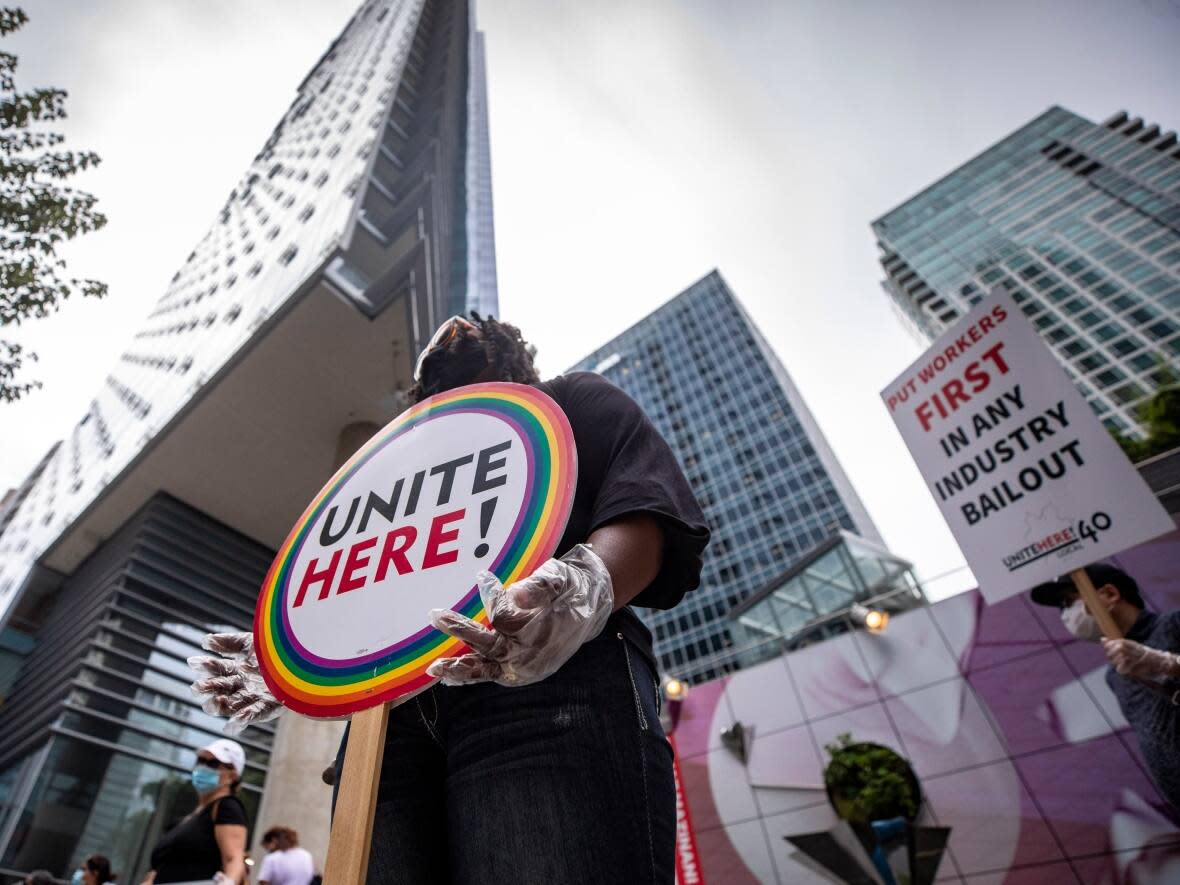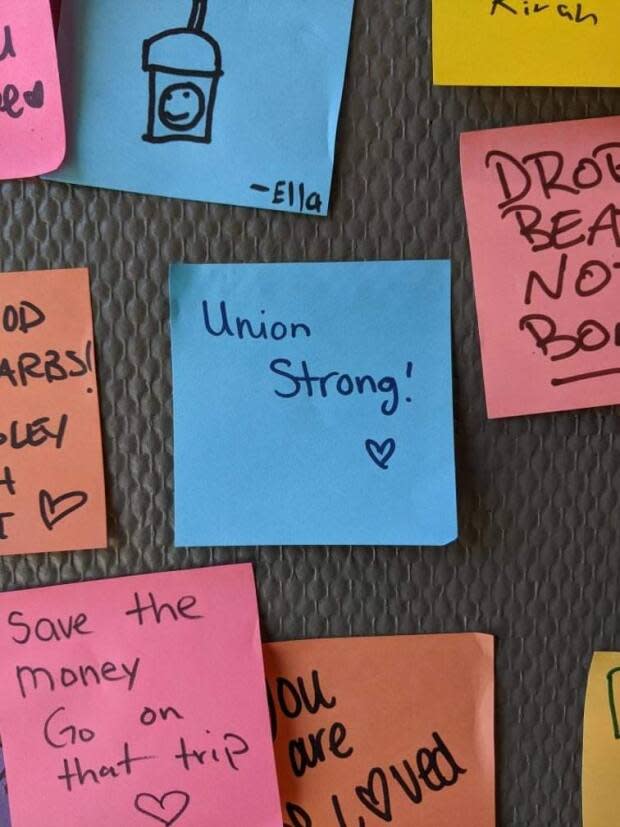Interest in unions is growing in B.C.'s hospitality sector, organizers say — but obstacles remain

Labour groups say interest in unionizing British Columbia's accommodation and food service sector has never been higher as the cost of living continues to spike — but barriers remain before more workers across the province can collectively organize.
One of B.C.'s public sector unions, the B.C. General Employees' Union, started job action earlier this week over a lack of wage protection amid rising inflation.
And, as such public sector unions flex their muscles — largely due to their collective agreements with the province expiring — there are also signs that union activity is growing in the private sector, where collective organization is relatively rare, especially in hospitality.
That uptick has been headlined by three Starbucks outlets in B.C. where staff have joined unions, in Victoria, Surrey and Langley.
Unionization rates in the private sector have steadily declined over the last two decades
"The conditions have gotten harder and more difficult for workers to make ends meet. It's created the conditions where workers want to organize," said Michelle Travis, the spokesperson for B.C. hotel workers' union Unite Here Local 40.
"You could say there's a fire that's been lit for workers."
At the unionized Langley Starbucks, shift supervisor Sarah Anderson says working conditions had the largest impact on employees' voting to join the United Steelworkers, and she is optimistic for the spread of the movement.
"We've had a lot of safety issues for our partners and ourselves. And it was getting to the point where we weren't seeing any response from higher up," Anderson told CBC News.
"What we're hoping for is that we can spread this wave across B.C. and maybe even potentially Canada."

The organization of the Langley and Surrey Starbucks outlets came in June, shortly after the province re-introduced single step certification for unions.
The rules mean that if more than 55 per cent of a workplace votes to sign union cards, they automatically become certified with the B.C. Labour Relations Board.
Travis calls the move a "positive step" for workers seeking to collectively organize.
But she said there are still several barriers to widespread unionization in the sector.
She says under B.C.'s current rules, an unwilling employer can often stall the most essential part of a unionized workplace — a collective bargaining agreement.
Travis points to the case of the Pan Pacific Hotel in Vancouver, where job action is ongoing over 100 workers who were fired at the start of the pandemic but not rehired.
While workers at the hotel formed a union in August 2020, they still don't have a collective bargaining agreement. The Starbucks outlet in Victoria voted to unionize in August 2020 but it took more than a year for staff to finally gain a collective agreement.
Number of workers in B.C.'s most staffed service sectors - 2021
Travis says another impediment to unionization in the hotel sector is the franchise model of ownership, which often means unions are dealing with multiple parties at the bargaining table, leading to drawn-out processes.
"The Hyatt Regency is … not owned by the Hyatt Corporation, they're owned by another company," she said. "It's a highly fragmented industry. In terms of organizing scale … it's challenging to do," she said.
Travis also highlighted labourers at work camps — which Unite Here also represents — as a sector likely to see a bump in union efforts due to spiking living costs.
Sectoral model
Kendra Strauss, director of the labour studies program at Simon Fraser University, says it's often easier to organize large industrial workplaces.
She says the franchise model for many cafes, retail locations and hotels means unionization is often a discreet process for each location, leading to slower union spread.
Strauss says she'd like to see a sectoral bargaining model in place within the private sector — something that isn't mandatory under B.C.'s Labour Relations Code, according to a government spokesperson.
"That's quite different than in some of the Nordic countries," Strauss said.
"You actually have a sectoral bargaining model where there is a master agreement that sets terms and conditions across the restaurant industry, for example. And that makes it a lot easier for the labour movement."
But if the uptick in union interest is to translate into a wave of unionization in B.C.'s food service sector, the first step would be a robust collective agreement at several chains like Starbucks, Strauss says.
"Is Starbucks where this is going to end? Because that's not going to transform the sector. It really needs to be broad-based organizing of workers in some of these other big chains," she said.
Staff demographics could also have a role to play in unionization.
Scott Lunny, director of the Western Canada division at United Steelworkers, said the Starbucks unionization had to do with younger workers feeling dissatisfied at the "progressive" branding of Starbucks management.
"We're working to to build on what's there already — a good group of mostly young workers who are interested in coming together and improving their working lives," he said.


